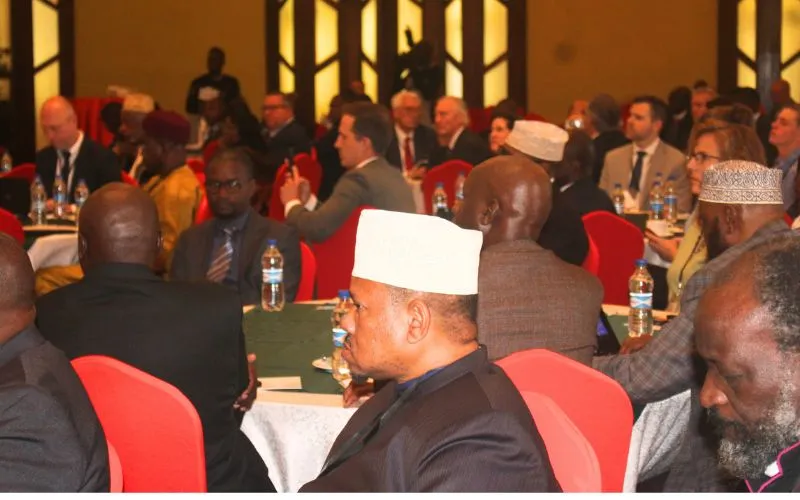 Delegates at the International Religious Freedom (IRF) Summit in Nairobi, Kenya. Credit: ACI Africa
Delegates at the International Religious Freedom (IRF) Summit in Nairobi, Kenya. Credit: ACI Africa
For him, “No Bishop, or even Priest, and at the end of the day, no African Catholic should be without guidance in this regard. So, all of us should take those things seriously.”
Cardinal Onaiyekan went on to encourage Catholic Church leaders to “reach out” to other their counterparts of other denominations, not by relying solely on Vatican documents as a guide, but by “finding together common elements, a shared foundation, which ultimately boil down to common human values.”
“I'm very careful not to talk too much about African human values, because if it is human, it is human, it cannot be just African,” he said, and added, “Those values are there, and our Church has told us that there are those human values that everybody is familiar with.”
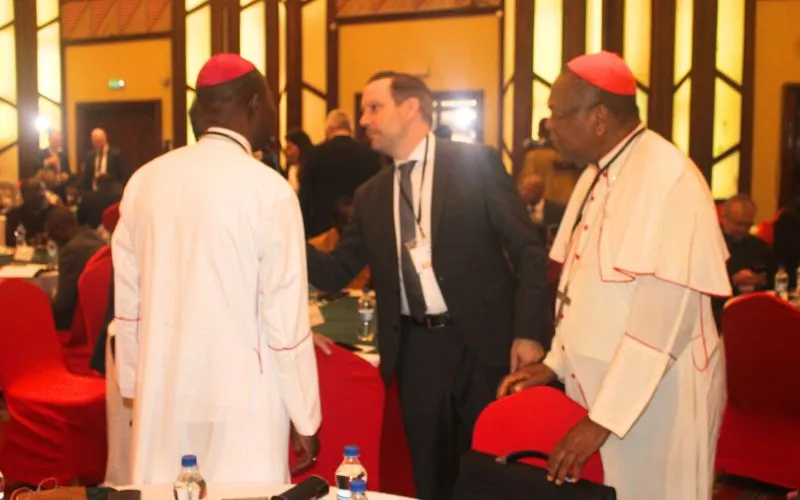 John Cardinal Onaiyekan, Archbishop emeritus of Nigeria’s Catholic Archdiocese of Abuja. Credit: ACI Africa
John Cardinal Onaiyekan, Archbishop emeritus of Nigeria’s Catholic Archdiocese of Abuja. Credit: ACI Africa
(Story continues below)
He emphasized, “If we pay attention to those things and give them priority in our work as religious leaders, we will meet together, all of us. It will not matter whether you are a Muslim, a Protestant, or a Catholic.”
The Nigerian Catholic Church leader, who featured as a panelist at the IRF Summit to discuss how “Faith leaders as ethical innovators” can contribute to “advancing religious freedom as a catalyst for African renaissance” highlighted some of the human values that could unite religious leaders in their pursuit for religious liberty on the world’s second largest and second most populous continent after Asia in both cases.
The human values include honesty, service, solidarity, and justice, he said, and added, “When we are talking about these things, we can talk together. If we can talk together, then we can act together.”
Cardinal Onaiyekan lamented some faith leaders’ tendency to be “inward-looking,” neglecting the need to focus more on the values and concerns that affirm the shared humanity of the people of God.
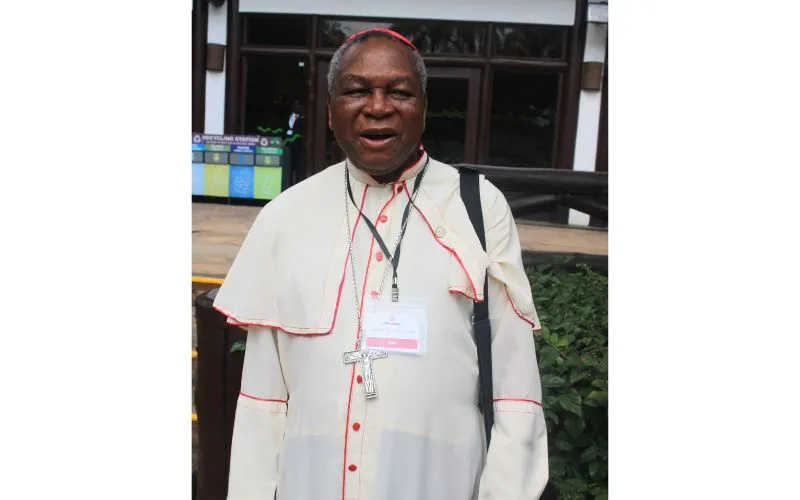 John Cardinal Onaiyekan, Archbishop emeritus of Nigeria’s Catholic Archdiocese of Abuja. Credit: ACI Africa
John Cardinal Onaiyekan, Archbishop emeritus of Nigeria’s Catholic Archdiocese of Abuja. Credit: ACI Africa
“The problem is, traditionally, we religious leaders have always been too much taken over, taken up by building our constituencies, meaning, you want to make converts, have a big congregation, build big churches and big dioceses, and if possible, convert others to join you,” he said.
“In all this, we become inward looking, and we are so much concerned about those things which make us Catholic, and we don't have enough time to also deal with those things which make us human beings,” he said.
For him, the continued preaching of the Gospel should be “on the basis of our common human values, which are also Christian values.”
“Preach the gospel in such a way that it is inclusive, open to all,” Cardinal Onaiyekan said, and added, “It is God that we serve; we don't serve our religions. And as a Cardinal, when I say that, I say it with all sense of responsibility.”
Nicholas Waigwa is a Kenyan multimedia journalist and broadcast technician with a professional background in creating engaging news stories and broadcasting content across multiple media platforms. He is passionate about the media apostolate and Catholic Church communication.
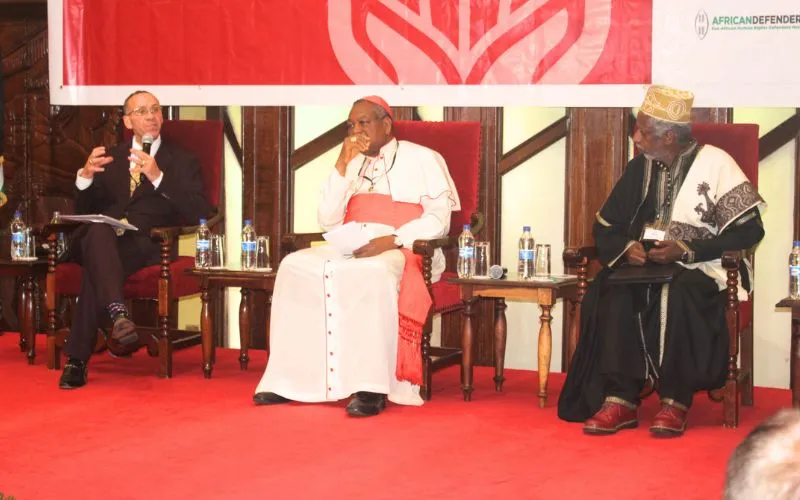 John Cardinal Onaiyekan, Archbishop emeritus of Nigeria’s Catholic Archdiocese of Abuja. Credit: ACI Africa
John Cardinal Onaiyekan, Archbishop emeritus of Nigeria’s Catholic Archdiocese of Abuja. Credit: ACI Africa


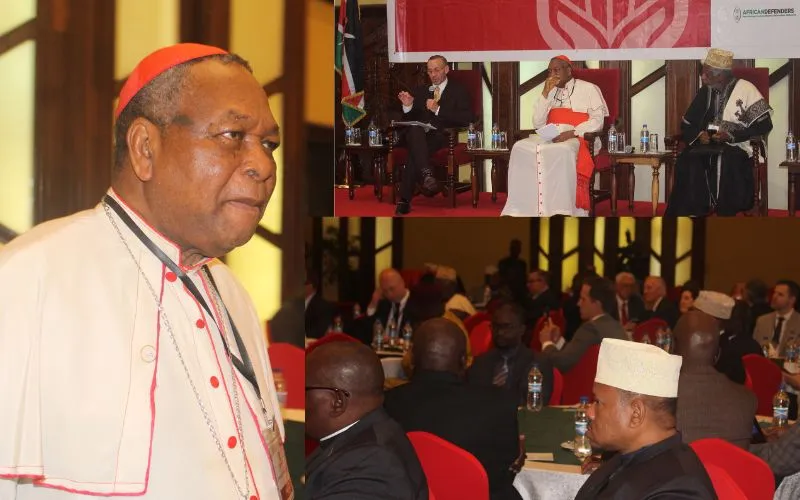
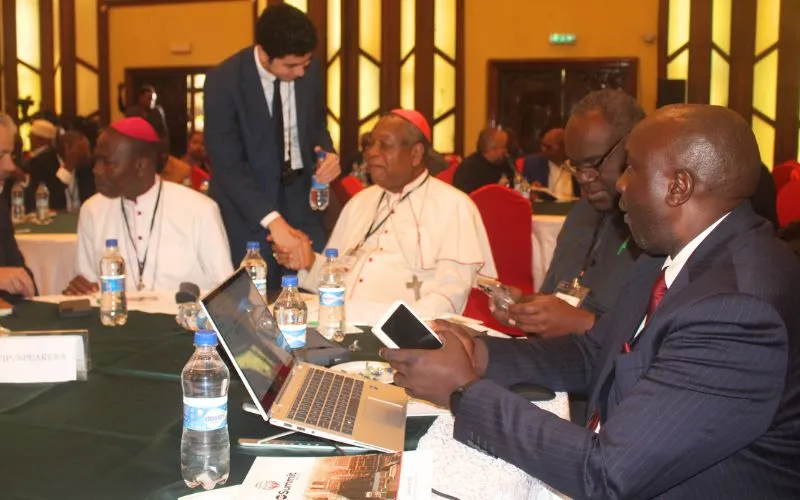 John Cardinal Onaiyekan, Archbishop emeritus of Nigeria’s Catholic Archdiocese of Abuja. Credit: ACI Africa
John Cardinal Onaiyekan, Archbishop emeritus of Nigeria’s Catholic Archdiocese of Abuja. Credit: ACI Africa
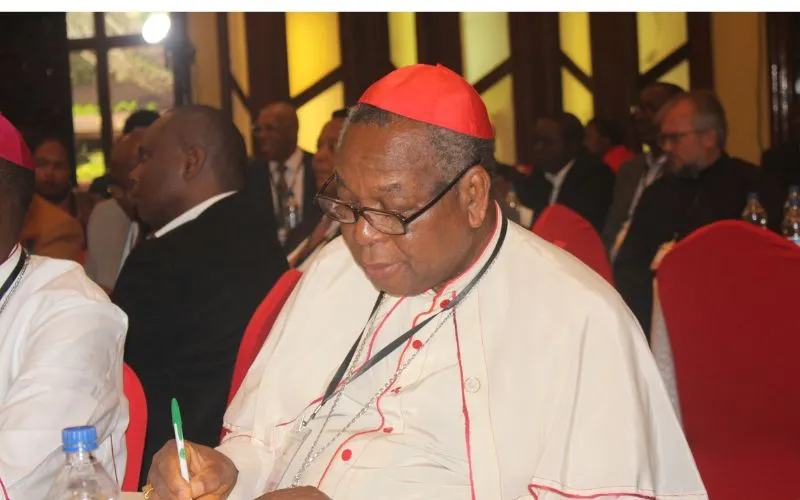 John Cardinal Onaiyekan, Archbishop emeritus of Nigeria’s Catholic Archdiocese of Abuja. Credit: ACI Africa
John Cardinal Onaiyekan, Archbishop emeritus of Nigeria’s Catholic Archdiocese of Abuja. Credit: ACI Africa Delegates at the International Religious Freedom (IRF) Summit in Nairobi, Kenya. Credit: ACI Africa
Delegates at the International Religious Freedom (IRF) Summit in Nairobi, Kenya. Credit: ACI Africa John Cardinal Onaiyekan, Archbishop emeritus of Nigeria’s Catholic Archdiocese of Abuja. Credit: ACI Africa
John Cardinal Onaiyekan, Archbishop emeritus of Nigeria’s Catholic Archdiocese of Abuja. Credit: ACI Africa John Cardinal Onaiyekan, Archbishop emeritus of Nigeria’s Catholic Archdiocese of Abuja. Credit: ACI Africa
John Cardinal Onaiyekan, Archbishop emeritus of Nigeria’s Catholic Archdiocese of Abuja. Credit: ACI Africa


